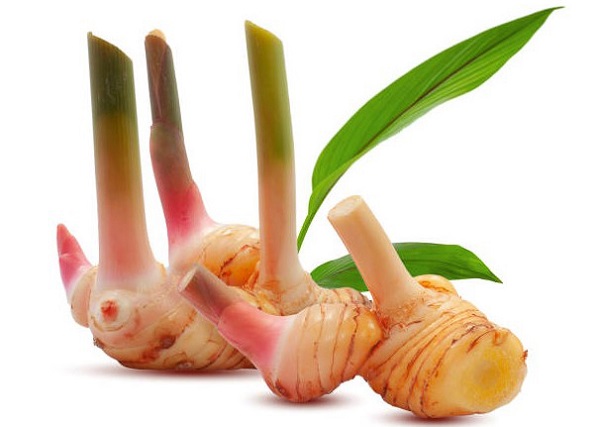Thailand Medical Researchers Discover That Phytochemicals from Galangal Can Suppress Lymphoma Growth
Nikhil Prasad Fact checked by:Thailand Medical News Team Aug 25, 2025 5 months, 2 weeks, 6 days, 29 minutes ago
Thailand Medical: Galangal a Traditional Spice with Modern Cancer Potential
Scientists from Chiang Mai University in Thailand have revealed that galangal, a spice long valued in Thai cooking and traditional medicine, contains natural compounds that may hold the key to suppressing lymphoma, a cancer of the lymphatic system. This Medical News report describes how extracts from several ginger family plants were screened against lymphoma cells, with galangal showing the most powerful results.
 Thailand Medical Researchers Discover That Phytochemicals from Galangal Can Suppress Lymphoma Growth
Who Conducted the Study
Thailand Medical Researchers Discover That Phytochemicals from Galangal Can Suppress Lymphoma Growth
Who Conducted the Study
The
Thailand Medical research team came from the Department of Medical Technology, the Cancer Research Unit of the Faculty of Associated Medical Sciences, the Department of Pharmaceutical Sciences of the Faculty of Pharmacy, and the Center of Excellence in Pharmaceutical Nanotechnology at Chiang Mai University. Together, they investigated how plant-derived compounds could offer safer and more effective ways to manage lymphoma compared to standard chemotherapy.
The Compounds That Make the Difference
From galangal, two phytochemicals stood out: galangin and 1′-acetoxychavicol acetate (ACA). Both showed strong anti-cancer potential, but ACA proved far more potent. It worked by shutting down c-Myc, a protein that drives cancer cells to multiply uncontrollably. Without c-Myc, the lymphoma cells could not continue to grow and instead began a natural process of self-destruction called apoptosis.
In tests on two human lymphoma cell lines, known as Raji and Daudi, ACA killed cancer cells at very low doses. It also triggered a surge in caspase-3, a protein that signals the death of unhealthy cells. Galangin, though milder in its cancer-killing effects, showed much less toxicity toward normal blood cells, making it a promising candidate for therapies with fewer side effects.
How the Cancer Cells Responded
The laboratory experiments showed that ACA reduced the number of viable cancer cells by around 40 percent in Raji cells and 60 percent in Daudi cells within just 24 to 48 hours. It not only stopped them from dividing but actively pushed them into programmed cell death. Galangin, in contrast, slowed down the cancer cells by blocking key phases of their cell cycle.
Both compounds lowered c-Myc and its active form p-c-Myc in a dose-dependent way, with ACA reducing these proteins by more than 70 percent in some cases. This suppression of critical cancer signals is considered a key reason why the lymphoma cells could no longer survive.
Pathway Insights and Future Promise
The researchers also used advanced genetic and molecular analysis to map out the pathways targeted by the compounds. Both galangin and ACA disrupted PI3K-Akt and MAPK signaling networks—major drivers of cancer progression. By attacking these routes, the compounds acted on multiple levels, weakening cancer cell survival strategies.
&am
p;nbsp;
Conclusion
The findings suggest that galangal is more than just a kitchen spice. Its bioactive compounds, especially ACA, are powerful enough to block lymphoma growth by suppressing c-Myc and activating cell death pathways. Galangin may be less potent but could offer a safer long-term therapeutic option due to its reduced toxicity in normal cells. Together, these phytochemicals provide a new foundation for developing plant-based cancer treatments that may be less harsh than conventional chemotherapy. While these results come from laboratory studies, they pave the way for future animal trials and eventually clinical testing in humans. The promise is that one day natural compounds from galangal may become part of the arsenal against lymphoma, offering hope for safer and more effective therapies.
The study findings were published in the peer reviewed journal: Biology
https://www.mdpi.com/2079-7737/14/8/1098
For the latest on Herbs and Phytochemicals, keep on logging to Thailand
Medical News.
Read Also:
https://www.thailandmedical.news/articles/herbs-and-phytochemicals
https://www.thailandmedical.news/news/phytochemicals-show-breakthrough-promise-in-fighting-deadly-pancreatic-cancer
https://www.thailandmedical.news/news/university-of-connecticut-clinical-study-finds-that-eating-walnuts-daily-lowers-risk-of-colon-cancer
https://www.thailandmedical.news/news/new-study-shows-that-molokheia-root-extract-can-kill-cancer-cells
